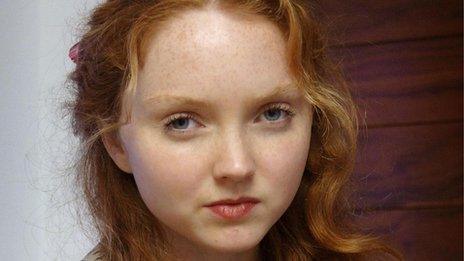Lily Cole challenges MPs on illiteracy
- Published
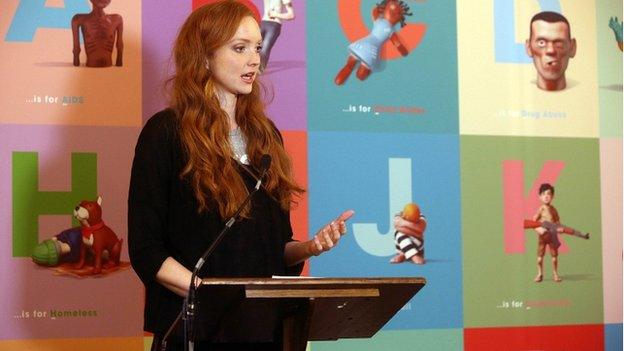
Lily Cole said it could be tough to make people take notice of the harm caused by illiteracy
Model and actress Lily Cole is spearheading a campaign calling for a global drive to tackle illiteracy.
Project Literacy, a coalition of campaign groups, says one in 10 people around the world is illiterate.
Ms Cole, speaking in the Houses of Parliament, said too often the impact of the problem was overlooked because it lacked "raw emotional power".
But she said illiteracy was of fundamental importance to jobs, health and political engagement.
Project Literacy is trying to raise the profile of the damage caused by illiteracy, which affects more than 750 million people around the world.
But Ms Cole, addressing MPs and campaigners, said it could be an uphill struggle to get across the message - and that this could conceal the scale of its seriousness.
"Illiteracy is not a sexy or exciting topic," she said.
"It's not as confronting in its raw emotional power as poverty or female genital mutilation. People aren't directly dying or overtly suffering of illiteracy. As far as global issues go, it may feel a little vanilla."
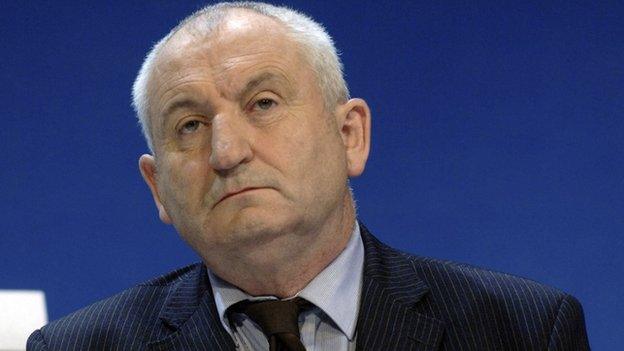
John Bird said he had learned to read as a teenager in prison
There was also a hidden problem with illiteracy in the UK, she said, which could be missed when learning to read and write might seem as "inevitable as growing teeth" for most children.
The campaign has produced an "alphabet of illiteracy", listing the ways improving literacy could alleviate other issues, such as infant mortality, gender inequality and early marriage.
Speaking ahead of the launch, Ms Cole said that tackling illiteracy could reach the root cause of many major problems.
"If we only ever deal with symptoms, then it's going to be a never-ending story," she said.
The success of health campaigns and drives against poverty would be undermined by illiteracy, she said.
And fair access to services and preventing discrimination against women depended on those targeted being able to read and write.
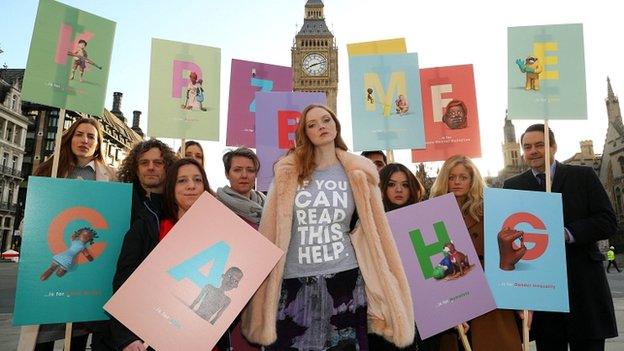
Project Literacy says many other problems are related to illiteracy
Illiteracy was responsible for "sustaining and amplifying a lot of these other problems", said Ms Cole.
And in the UK, she said, illiteracy could remain out of sight because of people's unwillingness to admit to it.
"I wonder if shame has a role to play, if people are embarrassed and less vocal in talking about it," she said.
In terms of her own reading habits, she said her current favourite novelists were Vladimir Nabokov, Truman Capote and JD Salinger. And in non-fiction, she said, she was reading books about economics.
And she said in a "perfect society" such campaigns would not need to be driven by celebrity names, but she accepted the "barter" of using her profile as a "vehicle or conduit" to bring media attention to a cause "close to her heart".
Project Literacy is supported by a mix of campaigns, charities and businesses, including Pearson, Microsoft and Unesco.
Stephen Twigg, chairman of the House of Commons International Development Committee, said illiteracy was as relevant an issue in the UK as in the rest of the world and improving reading and writing could be the route to addressing many other problems.
Baron Bird, founder of the Big Issue magazine, also spoke of the vital social significance of literacy, at an event promoting the campaign in Parliament.
It allowed people to take charge of their lives and gave them a sense of "social literacy", he told MPs.
He said he had only really learned to read and write at the age of 16, when he was in prison and an officer had taken the time to help him.
From being part of the "underperforming underclass", learning to read and write had meant that the "trajectory of my life had changed", he said.
- Published29 January 2014
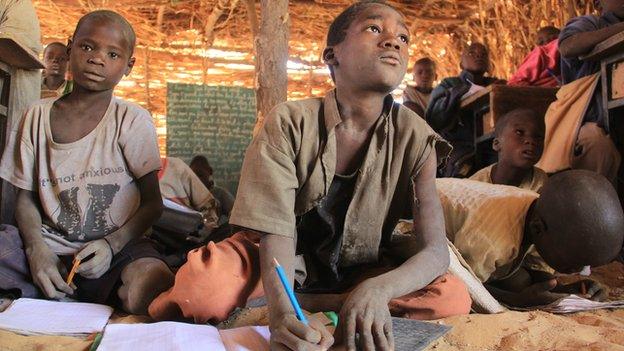
- Published5 January 2016
- Published10 July 2013
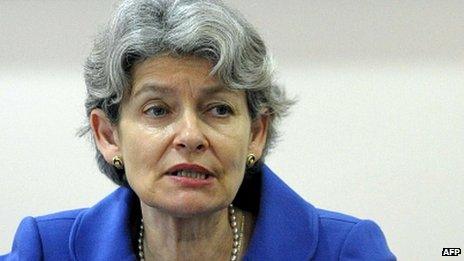
- Published2 January 2015
